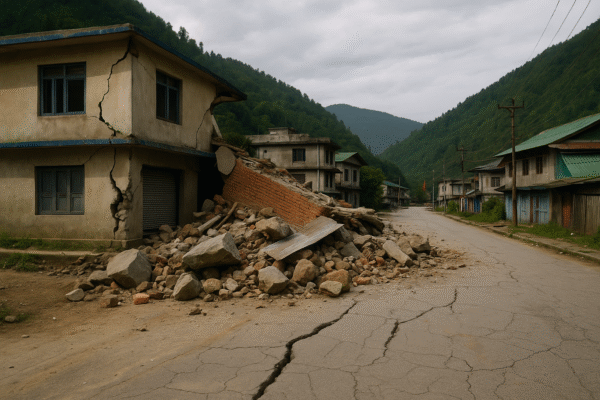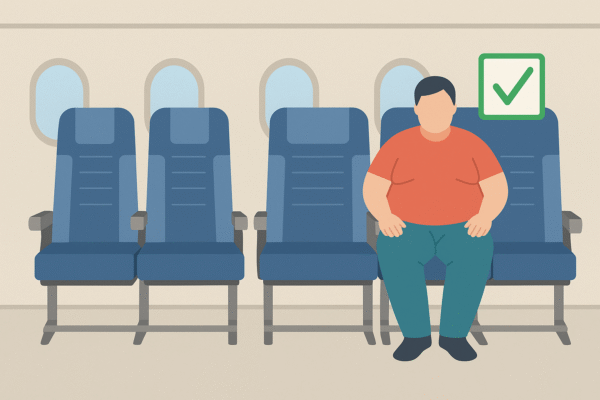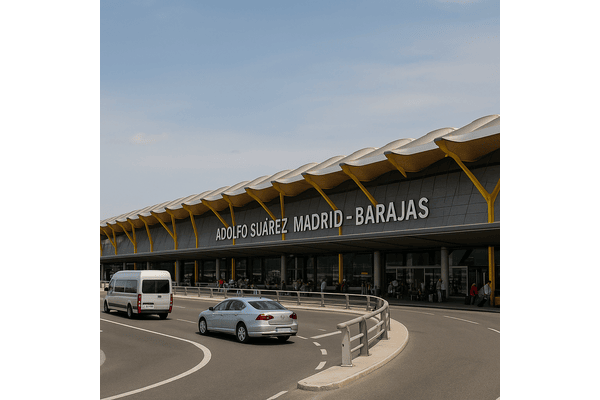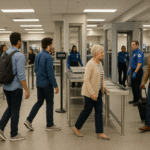MADRID, SPAIN – A bedbug infestation at Adolfo Suárez Madrid-Barajas Airport—Spain’s busiest international gateway—has triggered a growing health crisis and a public clash between the National Police union and airport authorities. What began as an isolated issue in Terminal 4 has now reportedly spread to Terminal 1, including the changing rooms used daily by police officers, according to union officials.
The Jupol union, which represents a significant portion of the Spanish National Police, has raised alarm over what it calls an “unacceptable health situation.” Officers assigned to the airport have reported suffering from painful insect bites, allergic reactions, and growing anxiety about carrying the pests home. Union leaders accuse airport management of ignoring repeated calls for action, further aggravating worker morale.
Growing Health Risk for Airport Police Officers
Jupol brought the issue to light via local media outlet OKDIARIO, sharing that officers have found bedbugs not only on benches and lockers but also on the ceilings and walls of their rest areas. These changing rooms are critical facilities where officers prepare for long shifts in high-security environments.
“Officers are literally being attacked by bedbugs,” said a Jupol spokesperson. “We are deeply concerned for their health and hygiene and outraged by the lack of urgency shown by airport authorities.”
Despite multiple complaints over the past few weeks, union representatives say airport management has been slow to act, prompting a formal escalation of the issue to the leadership of the National Police stationed at Madrid-Barajas.
Conflicting Responsibilities Between AENA and Police Services
According to the union, National Police leadership eventually requested fumigation services. However, AENA, the government-owned entity responsible for managing Spanish airports, reportedly did not act on the request promptly.
In a statement to Europa Press, AENA denied receiving any official notification regarding the infestation from the police. The organization clarified that while it is responsible for general maintenance of common areas, the changing rooms used by the National Police fall under the jurisdiction of the police service itself.
AENA also stated that no signs of bedbug activity had been detected by their contracted pest control providers during recent inspections at Terminal 4. The company said it had responded to previous bite complaints dating back to May but found no evidence of an infestation.
Nonetheless, the presence of ongoing complaints and visible bites on personnel has stirred public concern. Jupol insists the issue remains unresolved and has demanded urgent fumigation, a full-scale deep cleaning of affected furniture and lockers, and temporary relocation of the changing facilities to safeguard worker health.
Broader Implications for Airport Safety and Tourism Image
Madrid-Barajas Airport, which handled over 60 million passengers in 2023 according to AENA’s annual statistics, serves as Spain’s key international aviation hub. The emergence of a hygiene crisis in a facility of such scale raises significant questions about maintenance protocols and the allocation of resources toward staff welfare.
Health and safety concerns at an airport of this magnitude may also impact Spain’s tourism image. With summer tourism peaking and Madrid welcoming thousands of international visitors daily, the issue casts a shadow over the country’s broader infrastructure readiness.
Tourism stakeholders worry that if left unresolved, the infestation may affect not only airport operations but also international perception. A bedbug outbreak in a high-security environment could deter future travelers or invite scrutiny from international health and labor organizations.
Union Demands Accountability and Transparency
Jupol is now calling for accountability from both the airport’s management and the relevant government bodies. The union’s demands include:
- Immediate fumigation of all contaminated facilities
- Thorough sanitation and inspection of all furniture and lockers
- Temporary relocation of police facilities to safe areas
- A formal investigation into delayed responses
- Preventive measures to ensure future infestations are promptly addressed
“This is not just a workplace inconvenience,” the union said. “It’s a public health issue, and our officers deserve better.”
Government and Tourism Officials Under Pressure
This developing story has drawn increasing attention from national labor watchdogs and tourism industry observers. If the infestation continues unchecked, it could spur similar audits and reviews at other major Spanish transport hubs. Furthermore, Madrid’s city and regional tourism boards may need to consider additional public communication to reassure visitors about health and sanitation measures at the airport.
Spain’s Ministry of Interior and Ministry of Transport may be compelled to intervene if the dispute escalates further or if new evidence emerges showing mismanagement or neglect.
What Happens Next?
For now, the health and safety of National Police officers working in Spain’s most critical airport remain at risk, according to union leaders. The dispute also brings to the forefront broader questions about employee welfare in high-pressure tourism infrastructure and how swiftly government agencies respond to health complaints.
As Madrid-Barajas continues to serve as a vital hub for European and transatlantic travel, both domestic and international stakeholders will be watching closely to see if the airport acts swiftly—or whether worker advocacy must continue to pressure authorities into decisive action.
For more travel news like this, keep reading Global Travel Wire

















